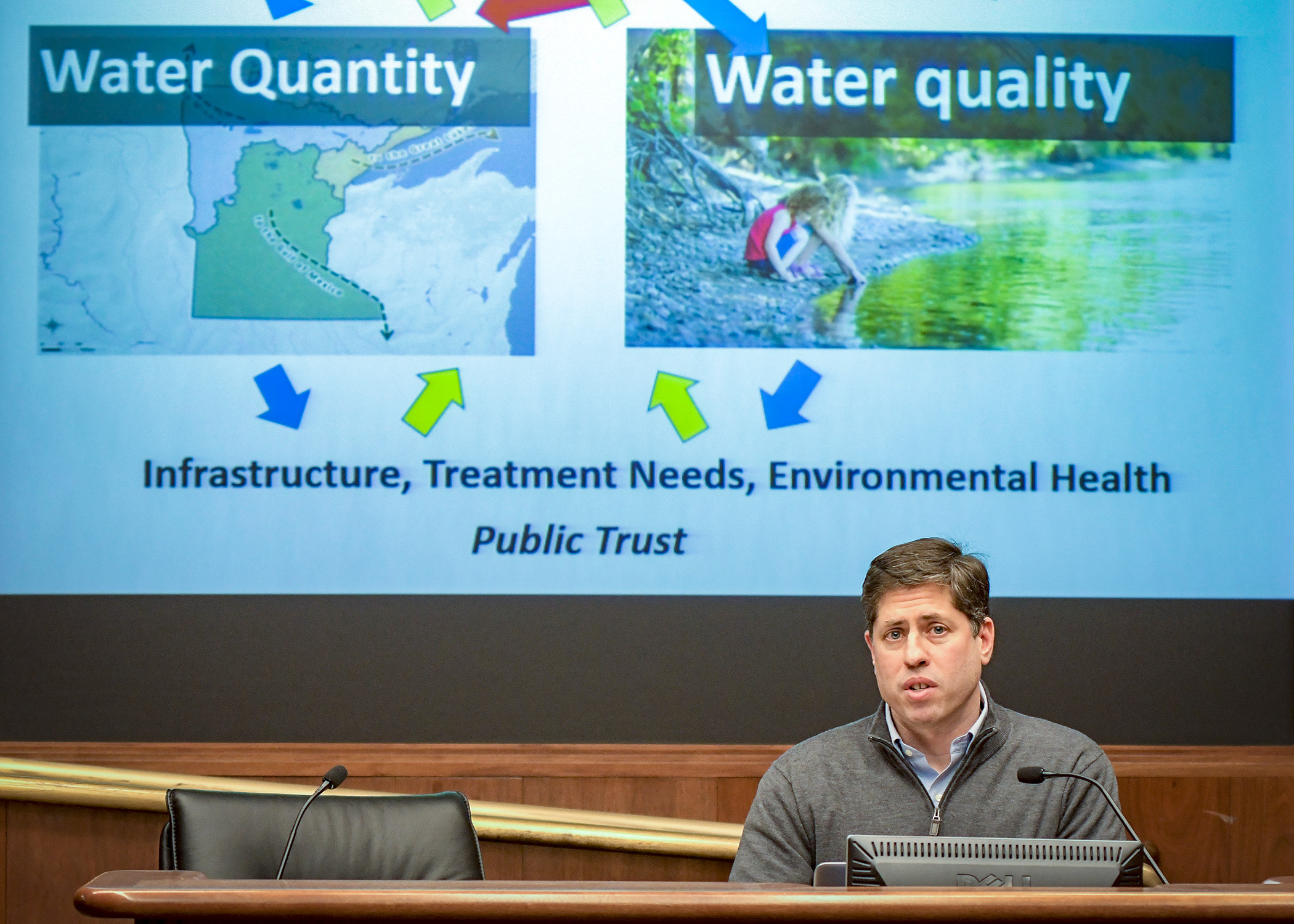House panel learns of current challenges to state’s waters

Minnesota’s waters face mounting challenges. Pollution lingering from the past is being joined by new pollutants, creating an evolving balance between the growth of society and preservation of an irreplaceable natural resource.
“One of the things grey hair brings to you is that we are doing things a whole lot better than we did when I started in 1974. We have made progress; we have a long way to go,” Calvin Alexander Jr. , professor emeritus of earth science with the University of Minnesota, told the House Water Division Monday.
Experts from the university stressed past successes in responding to water quality while outlining current challenges for division members. No action was taken.
New chemicals are entering the market constantly, said another university professor, Bill Arnold. They undergo testing before approval for use, yet not all the effects can be known before they enter the environment. That understanding develops as studies continue and interactions with other pollutants emerge.
“There are always going to be chemicals we are exposed to. … It’s through our water, through our food, through our environment,” Arnold said.
It is part of the tradeoff we make for the advances in society. Advocating for transparency, he noted the solution is through sharing information.
“There is going to be this communication between government regulators, policymakers, academia, and industry that is going to have to occur,” Arnold said.
Regional challenges
Water moves through different geologic landscapes in markedly different ways, said Rep. Paul Torkelson (R-Hanska), making it necessary that approaches to water management be suited to the region.
Alexander agreed, noting that while pollutants rapidly enter and spread in southeast Minnesota’s karst geology, for western Minnesota issues of aridity and a different geologic filtration system alter that equation.
Each of the state’s groundwater regions face different sets of stressors and responses affecting quality and quantity.
While central Minnesota has plenty of water, nitrate contamination is found in over 40 percent of shallow wells and the region’s sand aquifers are highly susceptible to contamination from land use.
The metro region’s high demand challenges the areas aquifers, as does contamination from chlorides, nitrates and other urban pollutants.
The southeast portion of the state is also blessed with a bounty of water, but its karst aquifers have potential for rapid contamination due to land use, including siting of industrial, municipal, and agricultural facilities.
In western Minnesota, where water resources are more limited, 20 percent of shallow wells show nitrate contamination. Deep aquifers face quality issues, while channel aquifers are highly susceptible to contaminants, including nitrate from feedlots, agriculture, and human wastewater.
Related Articles
Search Session Daily
Advanced Search OptionsPriority Dailies
Speaker Emerita Melissa Hortman, husband killed in attack
By HPIS Staff House Speaker Emerita Melissa Hortman (DFL-Brooklyn Park) and her husband, Mark, were fatally shot in their home early Saturday morning.
Gov. Tim Walz announced the news dur...
House Speaker Emerita Melissa Hortman (DFL-Brooklyn Park) and her husband, Mark, were fatally shot in their home early Saturday morning.
Gov. Tim Walz announced the news dur...
Lawmakers deliver budget bills to governor's desk in one-day special session
By Mike Cook About that talk of needing all 21 hours left in a legislative day to complete a special session?
House members were more than up to the challenge Monday. Beginning at 10 a.m...
About that talk of needing all 21 hours left in a legislative day to complete a special session?
House members were more than up to the challenge Monday. Beginning at 10 a.m...